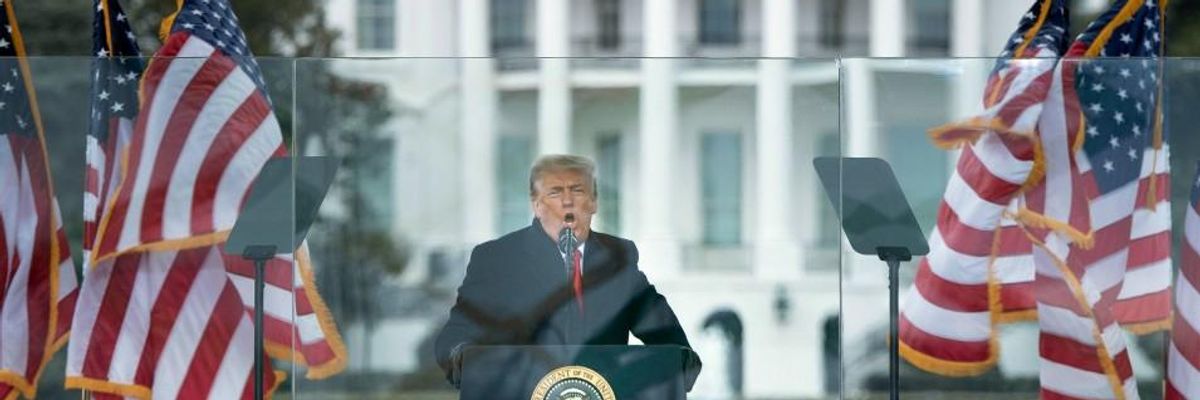President Joe Biden on Friday ordered federal record-keepers to allow the House committee investigating the January 6 insurrection to access a cache of former President Donald Trump's White House documents, denying an attempt by Trump to shield the information through executive privilege.
"As a part of this process, the president has determined an assertion of executive privilege is not warranted for the first set of documents from the Trump White House that have been provided to us by the National Archives," White House Press Secretary Jen Psaki said Friday.
White House counsel Dana Remus, in a letter to the National Archives obtained by NBC News, wrote that "President Biden has determined that an assertion of executive privilege is not in the best interests of the United States, and therefore is not justified as to any of the documents."
"These are unique and extraordinary circumstances," wrote Remus. "Congress is examining an assault on our Constitution and democratic institutions provoked and fanned by those sworn to protect them, and the conduct under investigation extends far beyond typical deliberations concerning the proper discharge of the president's constitutional responsibilities."
"The constitutional protections of executive privilege should not be used to shield, from Congress or the public, information that reflects a clear and apparent effort to subvert the Constitution itself," Remus added.
Journalist S.V. Date summarized Remus' letter by saying that Biden believes "there is a coup-plotting exception to executive privilege."
Biden's decision to block Trump's attempt to withhold documents from congressional investigators sets up a legal battle that could ultimately end up at the U.S. Supreme Court.
According toNBC News:
Under federal law, former presidents ask the current president to withhold any documents created during previous administrations, which are held by the National Archives. Trump's next step would be filing a lawsuit against the archives, but he faces long legal odds.
The courts have never definitively said how much authority former presidents have to assert the privilege once they're out of office. But as a practical matter, the views of the current president carry considerable weight. The Supreme Court ruled in 1977 that the incumbent president "is in the best position to assess the present and future needs of the Executive Branch."
What's more, the privilege is not absolute. Courts apply a balancing test in deciding whether it should apply.
The Supreme Court also said the privilege is limited to communications "in performance of [a president's] responsibilities," which might not cover discussions of how to get the Justice Department to undermine confidence in the election results.
Psaki said that "this is just the first set of documents, and we will evaluate claims of privilege on a case by case basis."
"But the president," she added, "has also been clear he believes it to be of the utmost importance for both Congress and the American people to have a complete understanding of the events of that day to prevent them from happening again."

